What you eat matters. The most fastidious foodie universities in the United States will tell you how to eat better.
The Good Food Fund and its seven chefs have designed a new year menu, "Leads the Future,” during the Spring Festival of the Year of Pig in 2019. This menu became a co-created Spring Festival dinner with five top universities in the United States, including Yale, Harvard, and the Culinary Institute of America.
The dinner aimed at promoting the exchange of international sustainable diets. It is the first time that Chinese chefs have toured the world's top schools. This passage is about the third part of the New Year Feast Tour: University of Massachusetts (UMass).
After debuting at Yale’s New Year's Eve Feast, the Good Food Fund Delegation went to the next stop: UMass. On the morning of February 6, they arrived at the University of Massachusetts Amherst, the largest of the five branches of the UMass, and also the largest research university in New England.
Andrew Mangels, Vice President of the University of Massachusetts, welcomed the arrival of the "Good Food Delegation" on behalf of the school's teachers and students. Many people may not be familiar with the University of Massachusetts, but it is in the leading position in the food field in the United States and even the world.
1. The UMass canteen ranks first in the United States. According to Vice President Andrew Mangels, an important reason why 70% of more than 30,000 students at UMass choose this university is that its canteen ranks first in the United States (Peers in the food industry agreed that the food UMass served tastes delicious).
2. The Department of Food Science of UMass is also ranked first in the United States and is truly a top discipline. Professor Decker, head of the Department of Food Science, is one of the most cited authoritative scientists in the agricultural / food field in the world and an expert in the US Food and Drug Administration (FDA). Besides, the Department of Hospitality and Tourism Management at UMass, founded in 1938, is consistently ranked top ten in the United States and top 20 worldwide.
Vice-President Andrew Mangels believes that universities play a critical role in food education for students. Most freshmen in college are leaving their parents for the first time, and they need to learn how to make food choices independently. Therefore, a good university canteen is very important for students’ physical and mental growth and can help young people develop good eating habits with life-long benefits. Good food education can be a lifetime of reward. Of course, the food provided by top campus cafeterias is delicious and healthy, sustainable, and environmentally friendly. Umass is committed to encouraging its students to explore new foods, such as tofu and greens, which are not common in the United States. Also, they advocate for the purchase of local ingredients to support the local food system. Simultaneously, they advocate reducing costs by controlling food waste, making restaurant operations more economical.
Mr. Ken Toon, catering director of UMass, also shared his successful experience in catering at UMass:
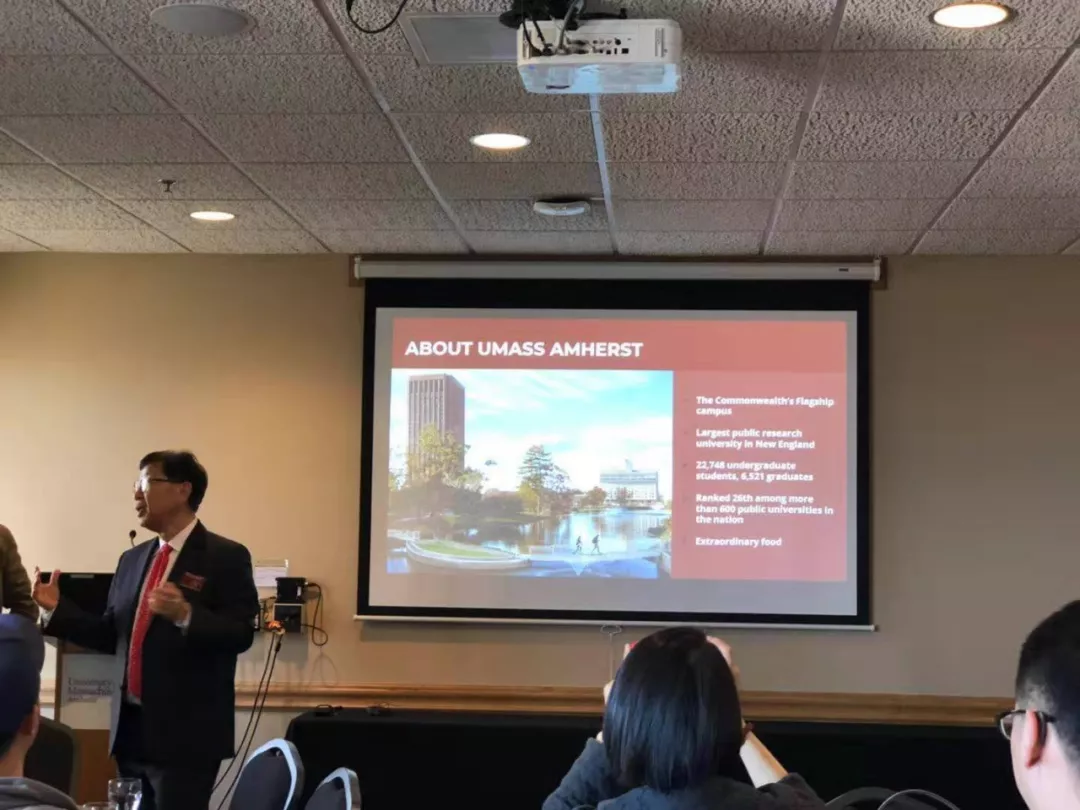
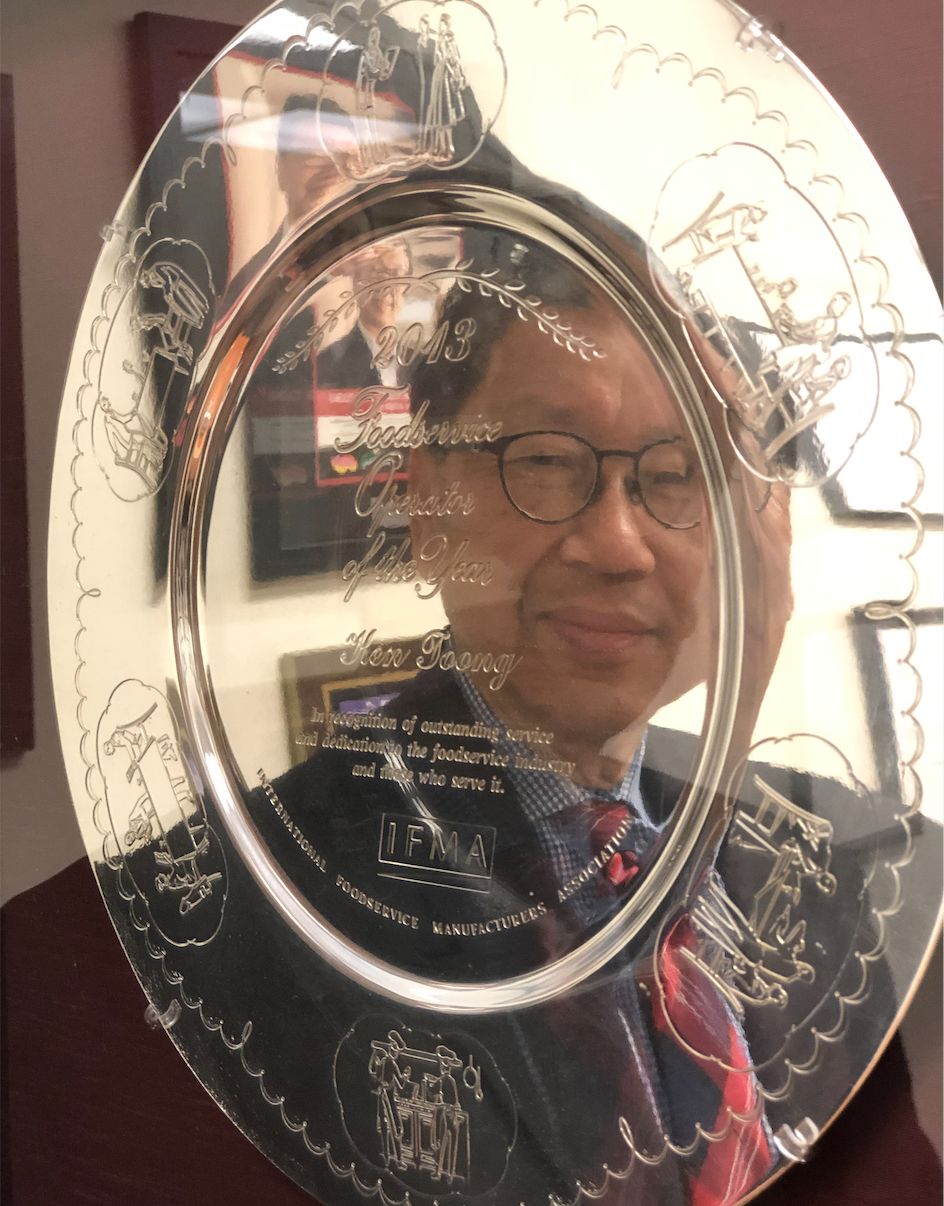
Note: The University of Massachusetts has been ranked first in the nation for catering quality for three consecutive years. Mr. Ken Toon and Medal Ken Toon
Born in Hong Kong, Ken Toon has demonstrated extraordinary leadership in leading the University of Massachusetts Catering to excellence. When asked about the underlying motivation behind a series of breakthroughs in catering at the University of Massachusetts, Ken said, "Do the right thing!" This sentence deeply impressed the Good Food Fund Delegation. "Do the right thing" is the true core of leadership and the internal driving force for an organization to become superior. It represents the core values of American university restaurants that continue to push themselves to do better.
The experience shared by Professor Eric A Decker, head of the Department of Food Science at the University of Massachusetts at Amherst, is one of the tour highlights. Professor Decker is one of the most cited authoritative scholars in food and agriculture in the United States. The Department of Food Science at the University of Massachusetts was first founded in the United States in 1918 and consistently top-ranked globally. Besides, three of the twelve professors in the department are the most cited scholars in the food science field, ranking first worldwide.
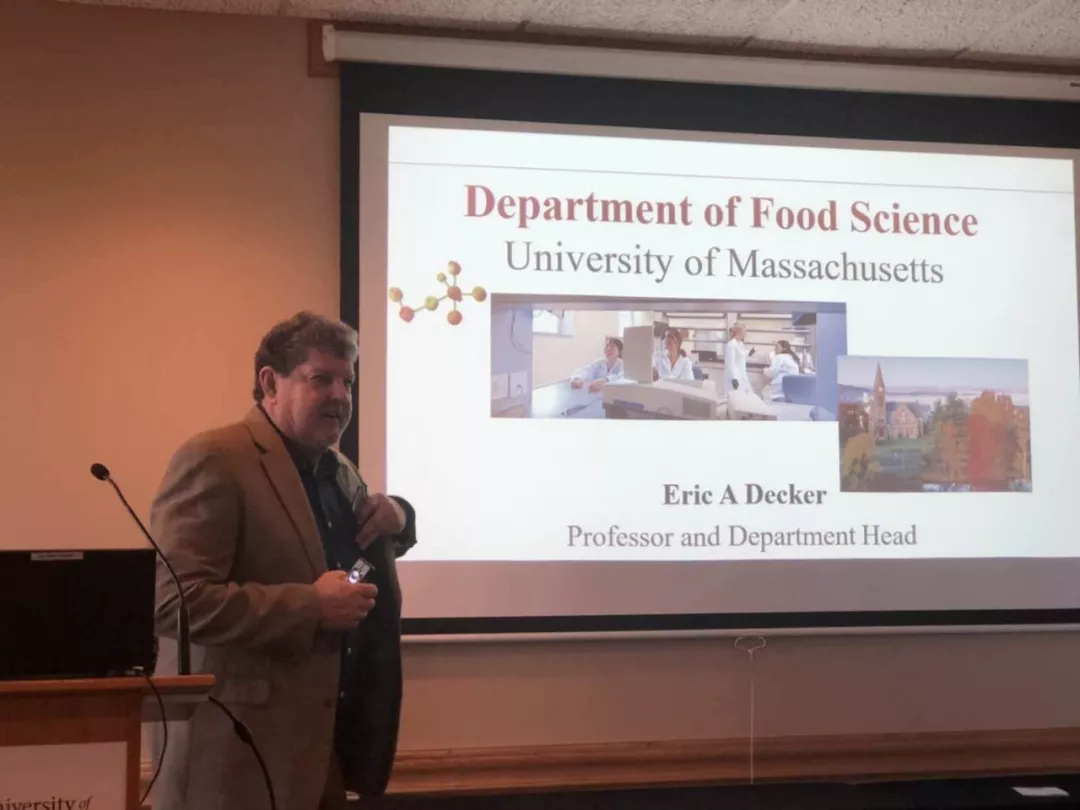
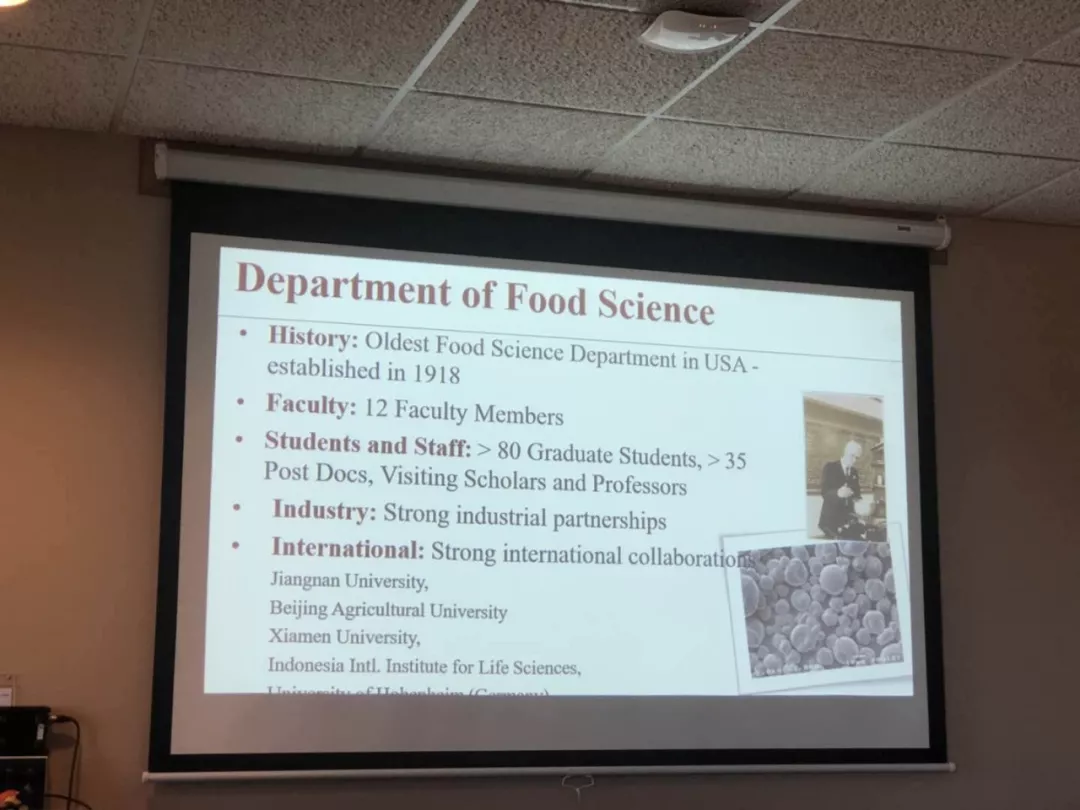
Professor Decker first shared the advantages and challenges of plant-based diets from a scientific perspective. He believes that plant-based diets have lower calories (depending on preparation), higher nutritional density, lower relative costs, and are more sustainable than animal-based diets. At the same time, the advantages of plant-based diets also face some challenges with constraints. For example, if everyone becomes a vegetarian overnight, they will likely go hungry because the US food policy subsidizes soybeans and corn to feed. Therefore, if more Americans are to engage in a plant-based diet, they must promote US food policies and change the food subsidies. On the other hand, in terms of food safety treatment of plant-based diets, there are still challenges such as improper handling and preservation of farms at the present stage. Moreover, pure plant-based diets might result in problems such as food waste and deficiency of certain nutrients.
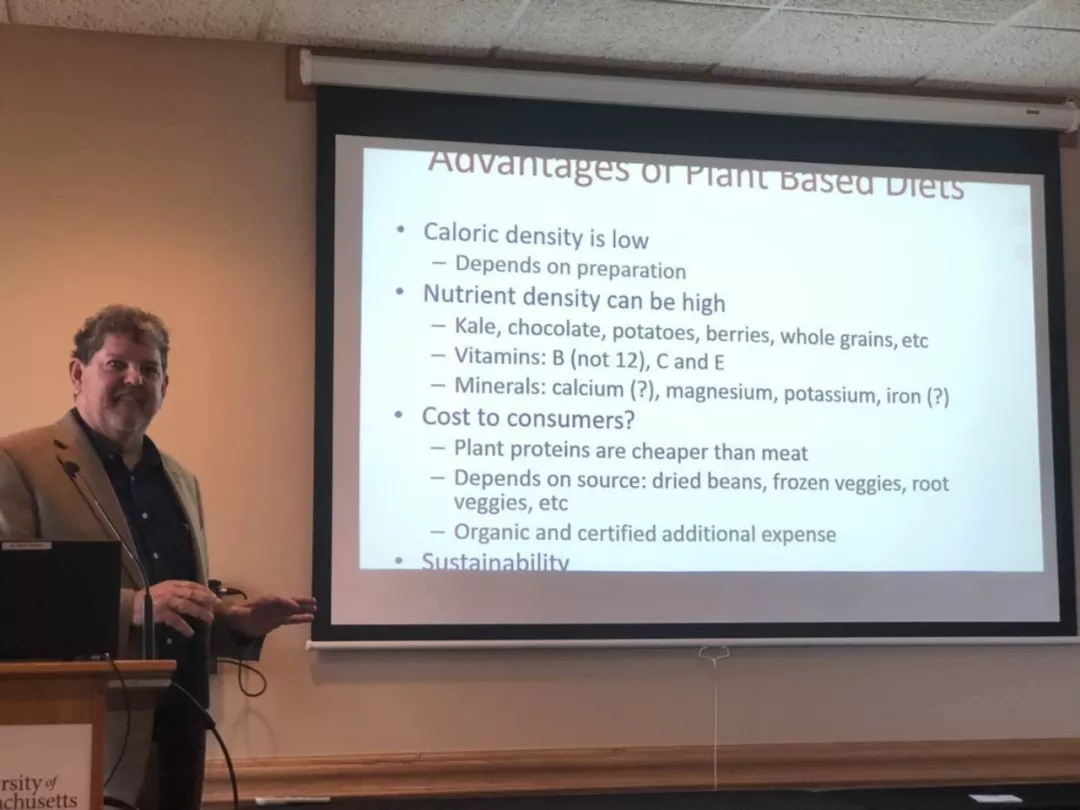


Another interesting point related to plant-based diets is sodium. Plant diets with light processing are high in potassium and low in sodium, which is relatively healthy. Salt is used heavily in the fermentation process, like making soy sauce, miso, and pickled vegetables. That is the reason why processed food contains high sodium. He used a set of data to show that the sodium content in Asian foods is higher: the average sodium consumption in Japan is 4.2 g per day; the average in China is 5.4 g per day; the average in Thailand is 4 g per day, and the US is 3.4 g per day. More processed sodium products are often used in vegetable cooking in China.


Finally, Professor Decker gave us a comprehensive display of the current status of plant-based diets through popular food chains such as Beyond Burger, plant-based meat, and other animal protein substitutes and the advantages and disadvantages of mixed meat. He concluded, "From the perspective of health and environment, we must promote the development of plant-based diets. The plant-based diet is an essential part of a healthy and sustainable food system. However, some issues must be noted when promoting plant diets, such as nutritional balance and food safety. We must work to improve plant protein function, reduce food safety risks, find sodium substitutes, and make plant diets delicious! (Americans don’t like greens, so the chef’s role in promoting a healthy and sustainable diet is vital. They need to design recipes in various ways to make vegetables delicious and healthy.)
The following are Professor Lisa M. Troy’s research project on the UMass Health Campus. Professor Troy is a senior scholar in nutrition research. She has participated in the formulation of the American Dietary Guidelines’ standards and participated in establishing "The Nutrition Evaluation Laboratory (NAL)" on campus.
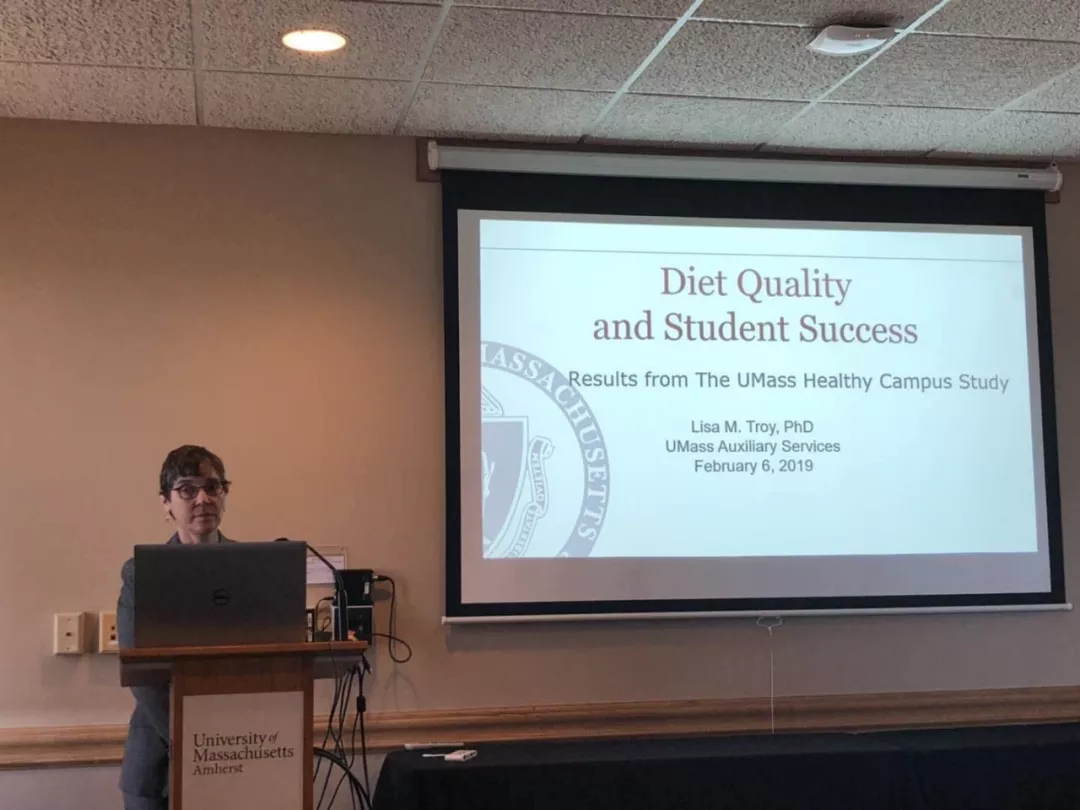

Note: Proportion of eating habits of UMass students: 71.2% omnivorous, the remaining 28.8% are partly vegetarians, including prolactin 4.7% and vegan 1.9%
The relationship between diet and academic performance:
-It was found that the higher the proportion of sweets (added sugar) in the diet, the lower the score is;
-The higher the caffeine consumption, the worse the academic performance.
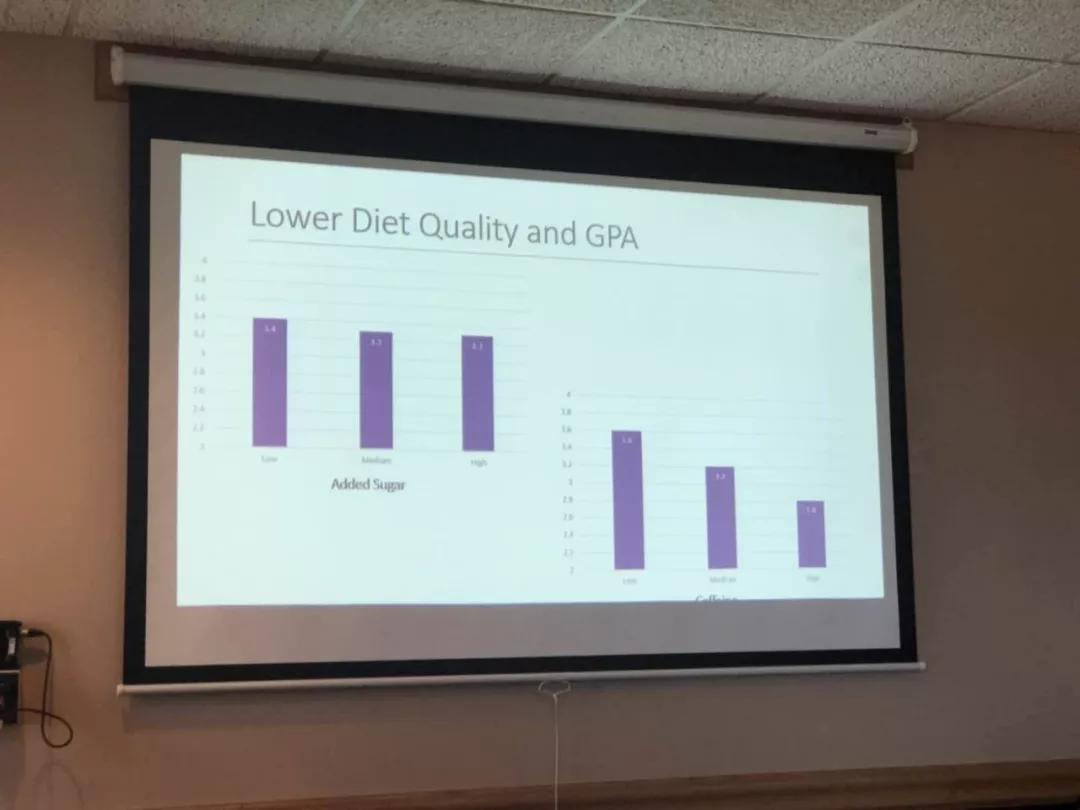
The study has found that the relationship between high-quality food and high-quality academics has strong correlations:
-Students with plant-based diets perform better academically, especially students who choose a variety of high-quality plant-based diets. The University of Massachusetts’s BMI index shows that the number of normal-weight students is higher than American college students’ overall average weight.

Note: This chart shows that normal-weight students eat more vegetables, especially dark green vegetables, while students who consume more added sugar often have weight problems.
Finally, Professor Troy shared some ways to encourage students to eat more healthy plant-based foods; for example, he recommends eating a rainbow meal or putting a lot of vegetable foods at the checkout counter to make plants the center and reduce the amount of food.
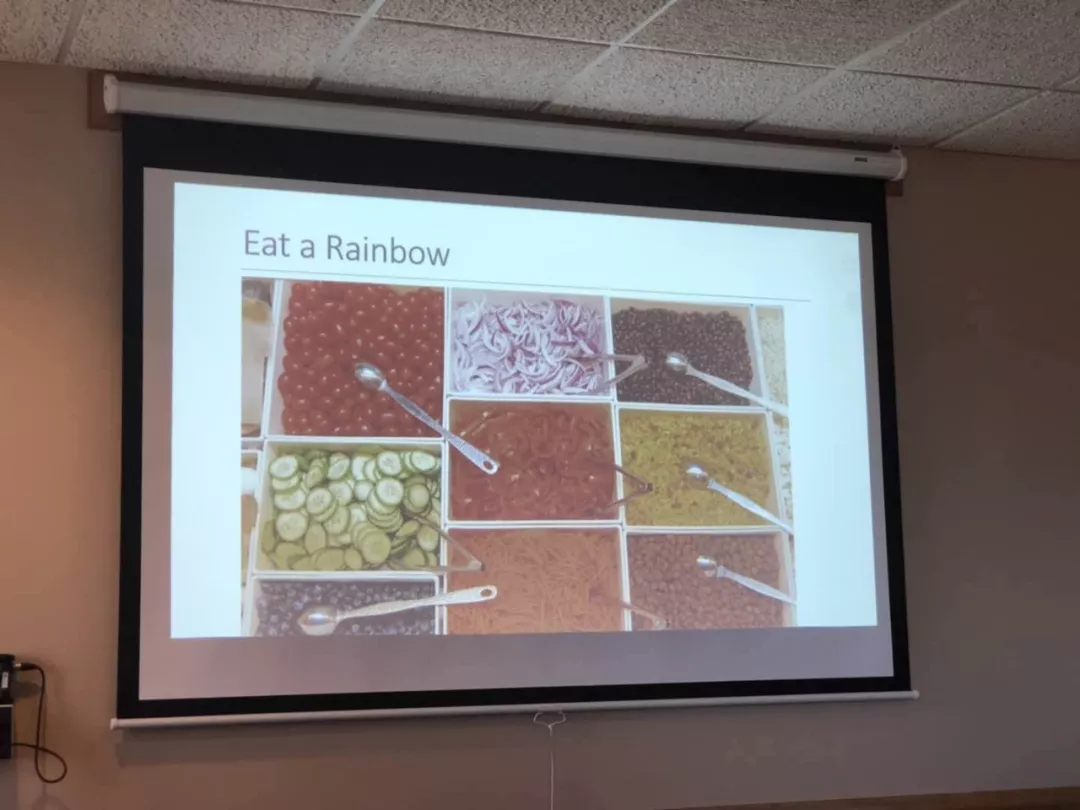
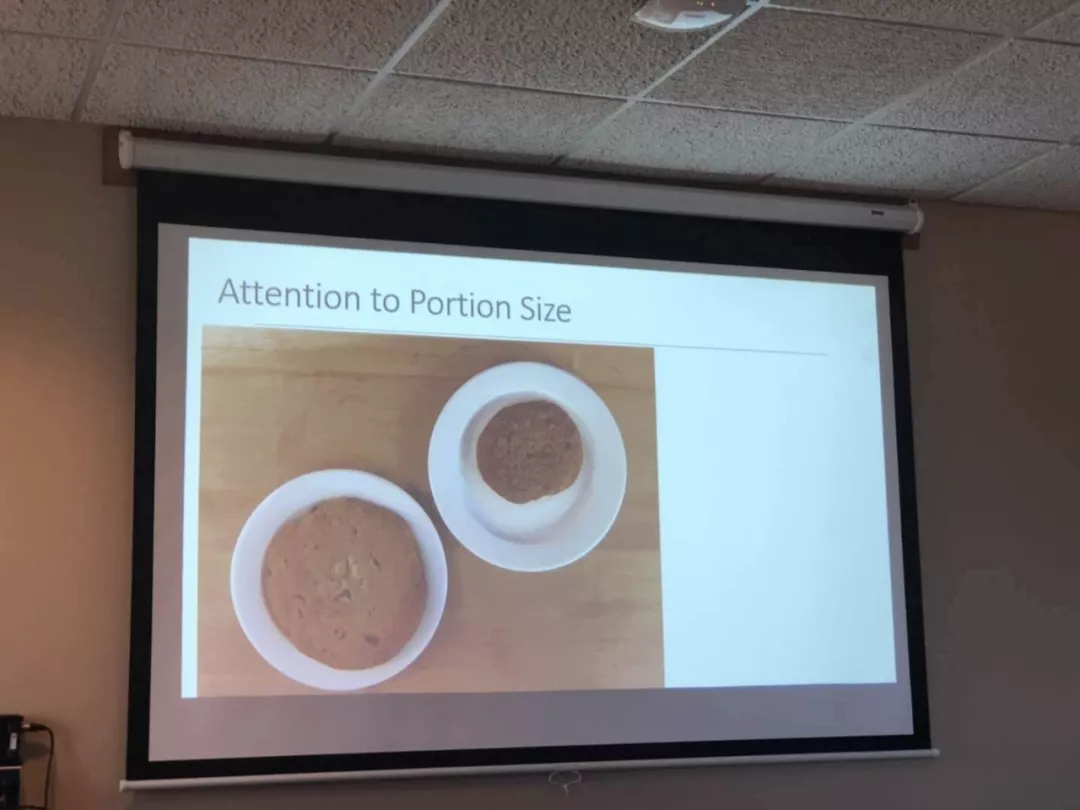
Note: The one on the left is a typical cookie size, and the one on the right is the weight of the University of Massachusetts. It can satisfy students’ appetite, but its weight is smaller, so the sugar intake is less, and it is cheaper. The portions of sweets are smaller so that students unknowingly eat less.
The farm has organically grown and non-organically grown fruits and vegetables (the former’s price is about 70% higher than the latter). In selecting ingredients, UMass students are more concerned about whether the food is local and seasonal than organic. Also, this farm also plants and processes food to better provide high-quality whole ingredients. Besides supplying catering at the University of Massachusetts, they also supply some local supermarkets.

Note: We are visiting the farm. Their products are provided to the University of Massachusetts and some organic supermarkets.
 Note: The freshly harvested pumpkin
Note: The freshly harvested pumpkin

Note: This is the raw material processing workshop for vegetable noodles, the raw material for cold zucchini, and other cold dishes that many domestic restaurants serve.


The University of Massachusetts cafeteria is full of Chinese elements.


Note: We are visiting the school's Marriott Center and student internship base.
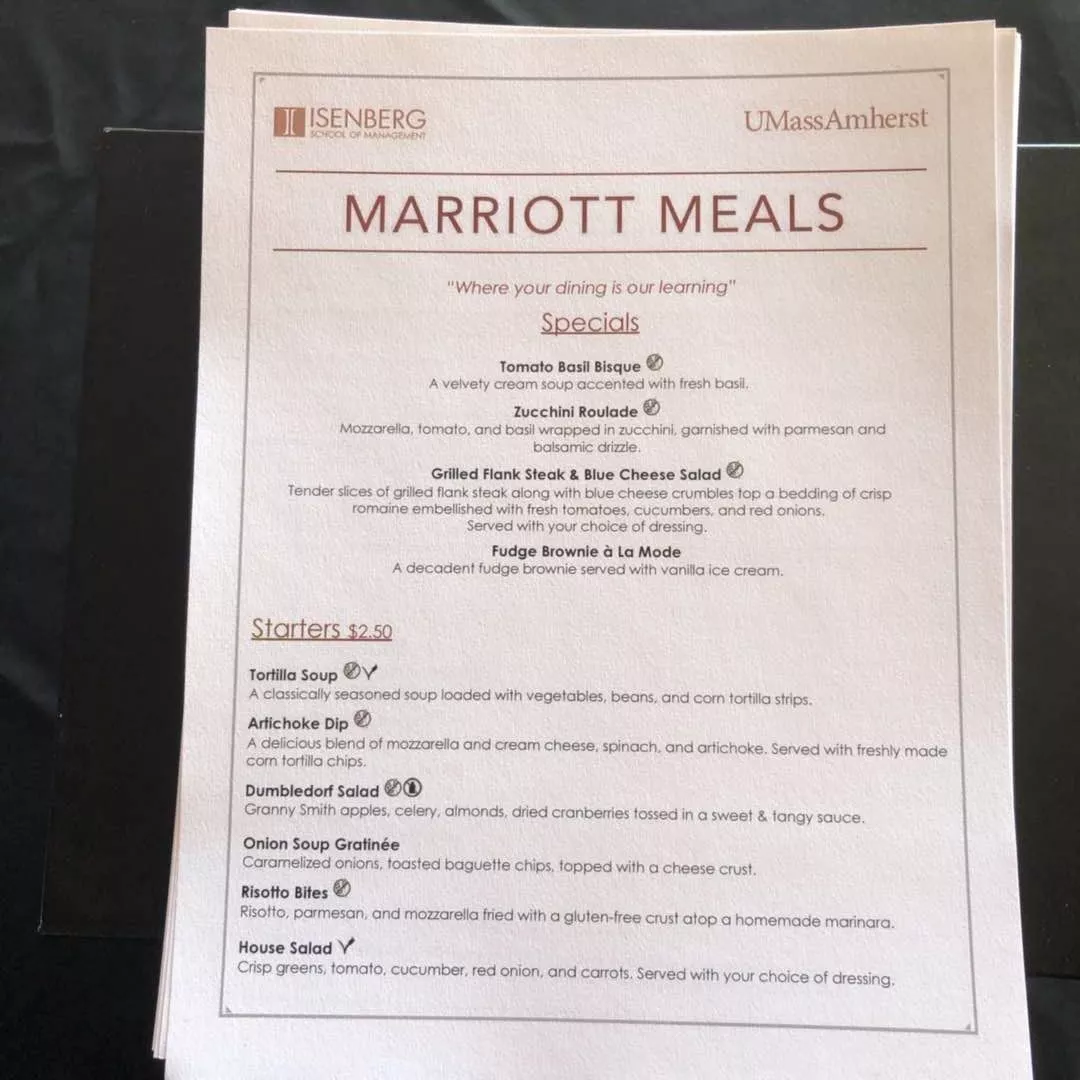
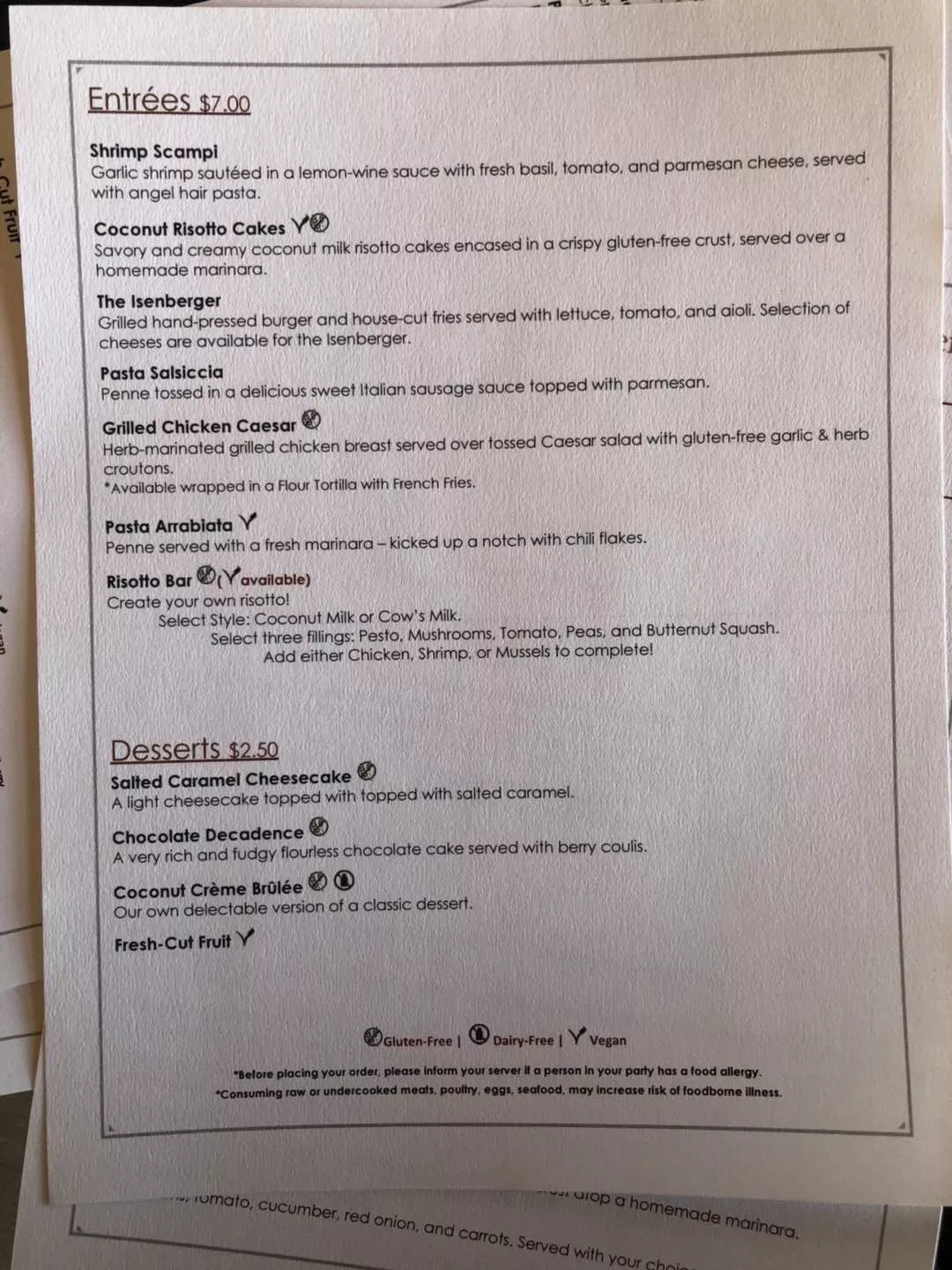
Note: The menu in the center has so many plant dishes.

Note: "Good Food Delegation" Group Photo at UMass Dinner
2.6. 2019
Jian Yi